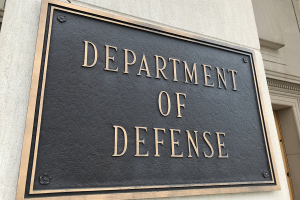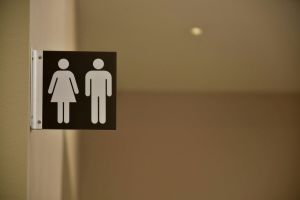Military Chiefs Ask Lawmakers to Delay DADT Repeal
Military chiefs testified for a delay in the repeal of "don't ask, don't tell," citing possible disruption to its current combat in Afghanistan.
Despite Secretary Robert Gates' acceptance of an open military, service chiefs expressed some apprehension in repealing the policy that bans gays from serving openly in the military and asked that it be delayed until the troops have been withdrawn from Afghanistan.
"My recommendation is that we should not implement repeal at this time," Gen. James Amos, the Marine Corps commandant, told the Senate Armed Services Committee on Friday.
Army and Air Force chiefs Gen. George Casey and Gen. Norton Schwartz also shared similar viewpoints.
Schwartz characterized the risk associated with a DADT repeal as "moderate," higher than Gates' projected risk.
Rather than an immediate switch, Schwartz said the implementation of any congressional repeal of the policy should be delayed until 2012 to allow time for education and training. Casey also supported a delay, while saying the law "should be repealed eventually."
The chiefs cited the answers of combat soldiers in the recently released Department of Defense report.
According to the report entitled "A Comprehensive Review of the Issues Associated with a Repeal of Don't Ask, Don't Tell," nearly 60 percent of combat Marine soldiers said it would affect them negatively to very negatively if they had to work with an openly gay solder in their immediate unit.
The majority of combat Army soldiers also said they would be very negatively to negatively affected if they had to work an openly gay soldier in their unit.
Additionally, 48 percent of Army soldiers in combat units and 58 percent of Marines in combat units said that allowing openly gay members would hurt unit cohesion.
While Amos, Casey and Schwartz reflected the soldiers' concerns in their recommendations and personal beliefs, Adm. Michael Mullen of the U.S. Navy spoke of the report's highlighted positives.
In Thursday's hearing, he quoted the report saying that the majority of respondents had a positive experience of working with someone they suspected was gay. Mullen said he too worked with closeted homosexuals in a destroyer vessel during the Vietnam War.
"We never failed a mission, never failed to deliver coordinates on target. Readiness was not impaired. What mattered most, what made us a crew was team work and focus on our combat mission," he stated.
Mullen dismissed the chiefs' call for a delay, saying that strong leadership, discipline and training is enough to overcome combat soldiers' fears.
"I believe now is the time to act," he said.
Conservative organizations such as the Family Research Council and the Center for Military Readiness continue to hold strong opposition to open homosexuality in the armed forces.
President Barack Obama and Democratic lawmakers need to gain two Republican votes in order to reach the 60 votes needed to overcome the threat of a filibuster and bring the measure to the Senate floor before their majority shrinks in January as a result of last month's elections.
However, congressional Republicans don't seem to be budging. During the two days of hearings, Republicans said they were not convinced by Secretary Gates' argument for repeal.
Also a coalition of Republicans have signed a letter committing to block the repeal legislation and others in order to force the issues of tax cuts and health care to the floor.





























